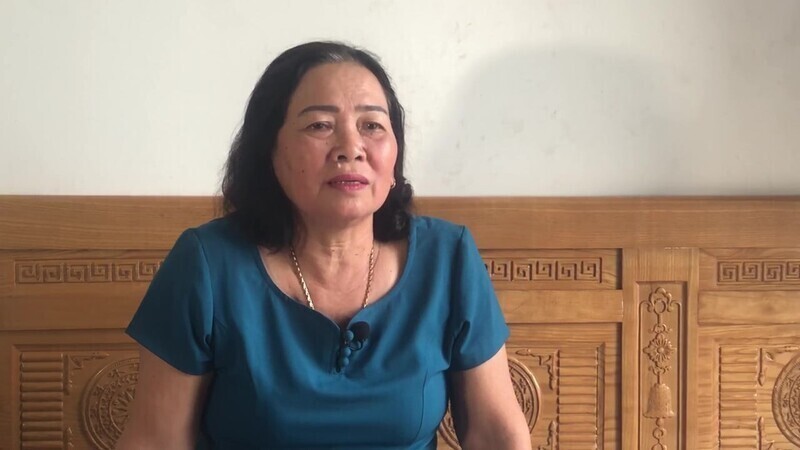hankyoreh
Links to other country sites 다른 나라 사이트 링크
[Guest essay] Vietnam War massacres teach Korea what it means to be a perpetrator of violence


What is peace? How do we define a peaceful state?
Paraphrasing the explanation of “non-violence” offered by the philosopher Emmanuel Levinas, we can suggest the following definition: it is a state of tension between the victim’s fear that they might suffer violence at someone else’s hands and the perpetrator’s fear that they might be capable of inflicting violence on another.
For “peace” to be sustained as a state, these two uncomfortable fears — which at first glance might appear to have nothing to do with peace — need to both be present and in conflict.
When a society is overwhelmed by the fear of being victimized, it tends to proceed toward violence.
In May 2011, young people in the US ran out into the streets to embrace, cheer, and blow on vuvuzela horns. This was in response to the news that Osama bin Laden had been killed.
Since the 9/11 terrorist attacks that claimed nearly 3,000 lives in 2001, US society had been gripped by fears of additional attacks. In the name of its “War on Terror,” the US immediately started bombing other countries and launched an invasion of Iraq — which had no connections to 9/11.
After a war lasting over a decade, the culprit behind those initial attacks had now been killed. American rejoiced in the news that they might not be threatened with death.
How many people did the US kill to ensure that it would no longer be victimized? A Brown University study estimated the number of people who lost their lives in the War on Terror in Iraq, Afghanistan, and Yemen at around 900,000.
To those Americans blowing excitedly on their vuvuzelas, there was no “perpetrator’s fear” competing with the fear of victimization — none of the worries that would make them shy away from choosing violence.
Early on in the War on Terror, there were calls like those from Susan Sontag, who urged, “Let’s by all means grieve together. But let’s not be stupid together.”
These messages articulated the perpetrator’s fear: the awareness that an indiscriminate military response would lead to innumerable civilian deaths, and that this would be a matter of overcoming terrorism through more terrorism.
But the vast majority of Americans drummed these perspectives out of the opinion marketplace, contemptuously labeling them as “defending terrorism.” This illustrated the process of a society spiraling toward violence.
On Feb. 7, the Seoul Central District Court ruled on a case filed by the victim of a civilian massacre during the Vietnam War to demand compensation from the Republic of Korea. The court acknowledged the truth of the massacre by South Korean troops and stated that the Republic of Korea bore legal responsibility as the defendant.
First and foremost, this ruling was historic in that it was the first ever to recognize the rights of a Vietnamese victim, who had gone through decades of suffering. At the same time, it was also a ruling directed at South Korea as a community: one that established the “position of the perpetrator.”
South Korean society does not have a very strong fear of being a perpetrator of violence. South Korea itself emerged out of a context of extreme violence through colonization and warfare.
The anticommunism that has been part of its core identity as a state manifested as the fear that the communists might “kill us.” In South Korea’s modern history, countless acts of violence were legitimized amid those fears.
Even when the facts of violence come belatedly to light, members of our society have tended to identify with the victims.
Amid our calls to never forget the April 3 uprising and massacre in Jeju or the events of May 1980 in Gwangju, none of us put ourselves in the place of the punitive forces departing the mainland to quash the rebellion on Jeju Island or the paratroopers descending on the South Jeolla Provincial Office. We’ve simply regarded the perpetrators of violence as “others”: Japan, the US, or the military dictatorship.
With the Vietnam War, it’s a different matter.
Due to differences in the victims’ nationality and language and the geographical distance, it’s impossible for us to identify with them and consider the historical tragedy without a sense of guilt. We also can’t simply shrug it off as ancient history.
South Korea’s official assessment of the Vietnam War is that the benefits of fighting helped to bring in foreign currency that contributed to astonishing economic growth. Behind the achievements that South Korea has realized today, there is at least some measure of death and suffering experienced by Vietnamese massacre victims.
While this ruling may have established a bit of the “position of perpetrator” where it had not existed before in South Korean society, actually placing ourselves in that position is a different issue. Once we take on that position, it raises unavoidable questions: How many people did we kill, why, and how?
Now that we are no longer able to avoid those uncomfortable and scary questions, now that we can continue to ask them, we can take steps toward peace — for it is these questions that lead us to questions of what we need today to take our finger off the trigger.
The historian Takeshi Fujii once said, “To be a perpetrator of violence is to be a sovereign.” The perpetrators of violence must recognize their actions as their own decision and responsibility. They must feel the weight of the trigger they would be pulling. This allows them to stop and to apologize sincerely.
When we strive to remember and learn the power of stopping and reflecting, South Korea as a society will not be so ready to proceed toward violence and war. Hopefully, more people will have the courage to put themselves in the position of the perpetrator.
Please direct questions or comments to [english@hani.co.kr]

Editorial・opinion
![[Column] The state is back — but is it in business? [Column] The state is back — but is it in business?](https://flexible.img.hani.co.kr/flexible/normal/500/300/imgdb/original/2024/0506/8217149564092725.jpg) [Column] The state is back — but is it in business?
[Column] The state is back — but is it in business?![[Column] Life on our Trisolaris [Column] Life on our Trisolaris](https://flexible.img.hani.co.kr/flexible/normal/500/300/imgdb/original/2024/0505/4817148682278544.jpg) [Column] Life on our Trisolaris
[Column] Life on our Trisolaris- [Editorial] Penalties for airing allegations against Korea’s first lady endanger free press
- [Editorial] Yoon must halt procurement of SM-3 interceptor missiles
- [Guest essay] Maybe Korea’s rapid population decline is an opportunity, not a crisis
- [Column] Can Yoon steer diplomacy with Russia, China back on track?
- [Column] Season 2 of special prosecutor probe may be coming to Korea soon
- [Column] Park Geun-hye déjà vu in Yoon Suk-yeol
- [Editorial] New weight of N. Korea’s nuclear threats makes dialogue all the more urgent
- [Guest essay] The real reason Korea’s new right wants to dub Rhee a founding father
Most viewed articles
- 1[Column] Why Korea’s hard right is fated to lose
- 2[Column] The state is back — but is it in business?
- 3Amid US-China clash, Korea must remember its failures in the 19th century, advises scholar
- 460% of young Koreans see no need to have kids after marriage
- 5[Column] Life on our Trisolaris
- 6[Reporter’s notebook] In Min’s world, she’s the artist — and NewJeans is her art
- 7Japan says it’s not pressuring Naver to sell Line, but Korean insiders say otherwise
- 8[Column] Monopoly Power: Is it time to bring back anti-trust?
- 9With 0.4 degrees left until “red line,” are we doing the best we can on climate change?
- 10Dermatology, plastic surgery drove record medical tourism to Korea in 2023